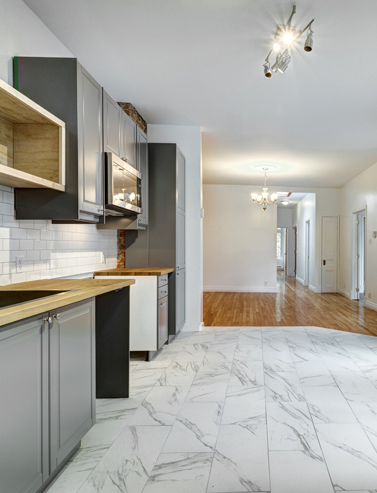

A listing in law is known as an ‘invitation to treat’. By this it means that the seller is open to offers. While they are not compelled to accept any offer, even one that is full price, they are also generally open to some negotiations.
Generally the price you offer should be realistic and at the same time have some ‘wiggle room’.
The Sellers, in considering your offer has three possible courses of action. They can accept it exactly as it is. They can reject it outright. Or they can counter-offer.

The seller will likely indicate on the listing what they are looking for. Both your and the seller’s circumstances will dictate this date. The more appealing you can realistically make this, the more appealing your offer will be.

Generally fixtures stay and chattels go. But here again anything can be negotiated. Itemize here what you expect to be left and what the Seller will be permitted to take. Circumstances will guide. If, for example, the Seller is elderly and moving into a retirement home, they may be thrilled to leave the appliances. If on the other hand, they are moving to a new home where those appliances will be needed, including them in your officer will hurt your chances of acceptance. Rely on your RE/MAX representative for input and advice.

These are generally for your benefit and protection, but remember the more conditions you have, the less attractive your offer will be to a seller. There can be any number of conditions in an offer. Some of the more common ones are:
(a) financing
(b) home inspection
(c) sale of property
When a seller agrees to an offer containing conditions, they are essentially removing their property from active marketing while you attempt to fulfil your conditions. You don’t have to worry about losing the property to someone else during the condition period. One exception to this would be when your offer is conditional upon the sale of your property. Because this condition period is generally quite long, it is normal that the seller is allowed to continue marketing their property. In the event they receive another offer, you would be given the opportunity to remove all conditions, or release the property to the new buyer.


It is customary to submit a deposit with your offer. Either at the time your offer is drawn up or upon acceptance.
While there is no legally required size for the deposit, it is a sign of good faith and should be large enough to let the seller know you are serious. Often deposits run in the $5,000 to $10,000 range, but depending on the size of the purchase can be much larger.
If you have a house to sell, most if not all of your equity will likely be tied up in your property. Still, a deposit will be required and you’ll need to make arrangements for this. Should your offer have conditions, your deposit should be returned if those conditions cannot be fulfilled. Once firm, the deposit will be used on closing as part of the purchase price.
In the interim, deposits are generally held in the trust account of the listing brokerage.

At presentation, we saw that the seller had three possible avenues to take. Assuming the offer is not acceptable, the seller will generally sign the offer back. This becomes an offer to sell from the seller to you. Generally at issue is the price, but any items; closing date, inclusions, exclusions, conditions are open to change.
When the seller signs back an offer to you, it will have an irrevocable period in which you can consider their offer without worrying about another offer coming in and the property being sold out from under you should you alter and sign back that counter, the protection is lost and the property is back in play.

On occasion, especially in a hot market or with an especially well priced or rare and desirable property, you may be in competition with other offers being submitted at the same time. This, of course, is good for the seller, but creates unique challenges for you the buyer.
You cannot expect the luxury of a sign-back. And even if the seller elects to sign one offer back, it may not be yours. It’s best in these situations to go in with your best offer. One where you won’t regret losing the property if someone other than you paid more.